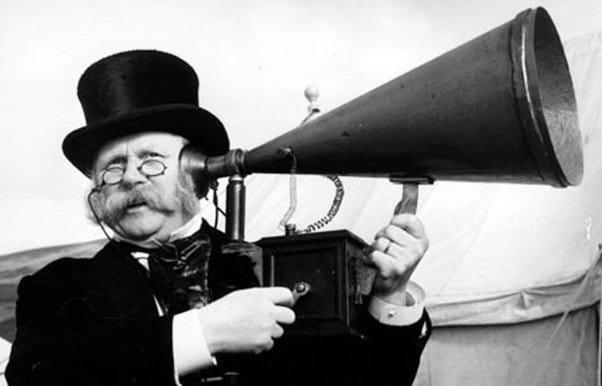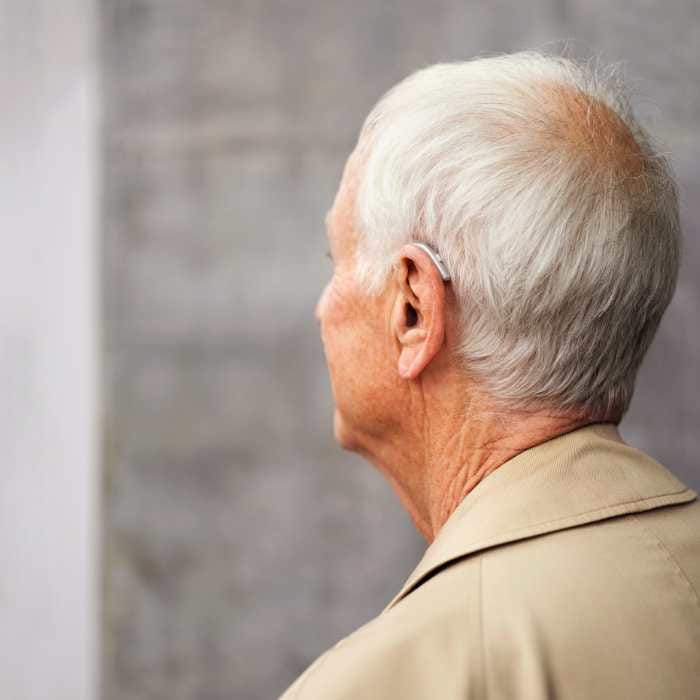Toronto, June 9, 2024
Huh?
My wife, Cynthia, said something to me, but I didn’t quite catch it.
“What did you say?” I asked. “You’re mumbling again.”
“Do you have your hearing aids in?”
“Yes.”
“Well then,” she said, “they’re not working properly.”
As usual, Shakespeare got it right—almost. In the famous As You Like It “All the world’s a stage” monologue, Jaques describes the seventh age of man as “second childishness and mere oblivion; Sans teeth, sans eyes, sans taste, sans everything.” He should have added “sans ears.” Old people typically suffer from hearing loss, sometimes severe.
My favourite uncle died when he was 95. There were times, years ago, when we spent quite a lot of time together in the beautiful Buckinghamshire country house that he and my aunt lived in for many years. Of an evening, we’d talk about many things over a glass or two of The Famous Grouse. He was old and intelligently right-wing (not about everything—he could be surprising) and I was young and veered to the left. When he got fed up with me, or exasperated, or tired—when he decided he’d had enough of the conversation, and of me and my opinions, and he wanted to go to bed—he would conspicuously and solemnly remove his large old-fashioned hearing aids and put them in his pocket. The conversation was over. That was that. Point made. I miss my uncle.
Old people live in the country of the deaf. Not long ago, in early winter, my wife and I were on a plane to Florida. I was in an aisle seat at the back of the aircraft. I looked towards the front of the plane, along the many rows of passengers, most of them old people going south to bask in the sun, and noticed a sleek and modern hearing aid, virtually invisible, discreetly tucked behind almost every affluent ear.
Even the newest hearing aids don’t always work that well. We were at a dinner party recently when midway through the main course one of the guests, the host’s next-door neighbour, suddenly said, “I can’t hear anything.” He fiddled with his hearing aid. “Something’s wrong!” he said, with agitation. “I have to go home and fix it.” He left. Sometime later he returned, beaming. “It’s fine now. I can hear perfectly. It was wax.” The other guests took this incident in their stride, their appetite unimpaired. Things like this happen all the time in the country of the deaf.
I have new hearings aids myself. They’re bluetooth, mini-computers, very hi-tech. They automatically adjust to various hearing environments—car, restaurant, television, music, quiet time, etc. They link to my iPhone. When I have a phone call I can answer it by tapping my right ear twice, which attracts attention if I’m walking down the street. Why’s that poor old guy hitting himself on the side of his head? Also, it means that I’ve joined the legions of people who walk around the streets in a trance listening to podcasts, or, if they’re on the phone, apparently talking to themselves.
I took my new hearing aids in for routine service and to see if the program needed to be tweaked (bearing in mind what Cynthia had said). The audiologist hooked them up to a computer and looked at a screen full of data. “Ah,” she said, “I see you wear them most of the time. That’s good. You’re hardly ever in a car, right? You don’t drive? Why not? But I notice you’re in restaurants a lot. And you watch too much television.” I am being surveilled by my hearing aids. It's okay, they’re Swiss, not Chinese.
“Any issues?” asked the audiologist.
“Not really,” I said, “except that sometimes I can’t hear my wife very well.”
“There’s no program that will fix that,” she said.





I also loved the last sentence.
My boyfriend and I have such conversations (we're in our 60s), and recently I have been saying, "Stop. Let's look at each other when we talk." Sometimes it works.
Daniel Kahneman (Nobel prize winner) studied behavioral psychology and said we often don't "hear" what other people really say. I recently said to my mom (90-years-old) "THat nurse is a really nice guy." Her response, "Did you say, "I'm going to die?"
I now realize that a large part of your Endgame has a healing effect on me.
Fearlessly, you have taken on the vulnerability of old age and you at times make us laugh, always being aware of the seriousness at the same time. Your ‘Endgame’ is very helpful, also in the aspect of communication. There is a lot to be learned. Thank you very much.